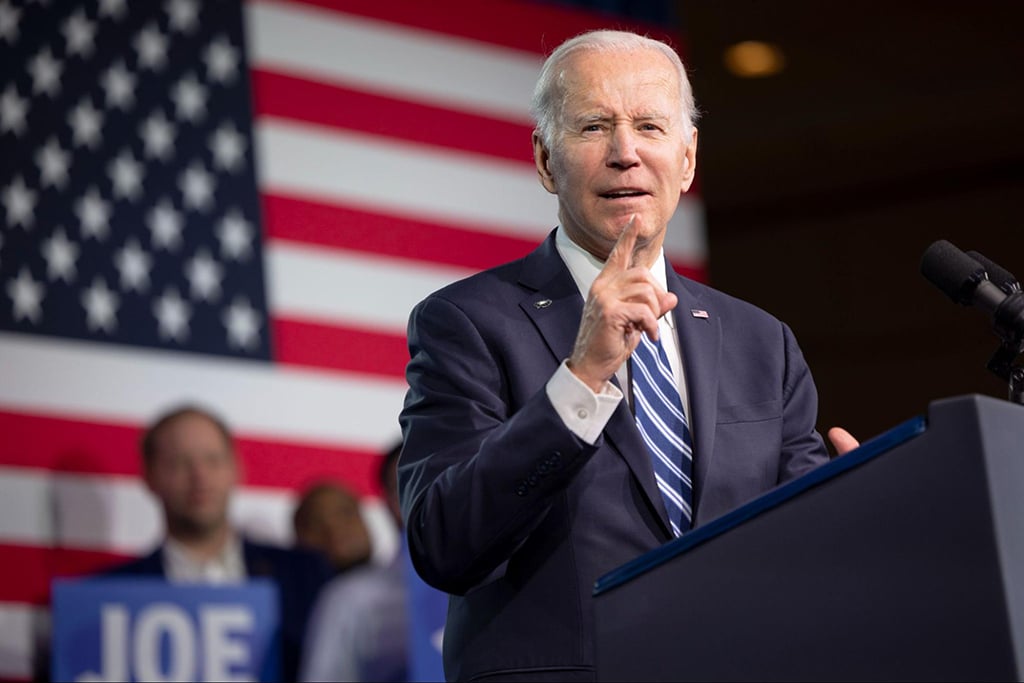
Ibukun is a crypto/finance writer interested in passing relevant information, using non-complex words to reach all kinds of audience. Apart from writing, she likes to see movies, cook, and explore restaurants in the city of Lagos, where she resides.
The levy on unrealized capital gains is a significant change in the Joe Biden Billionaire Minimum Income Tax.

Although a round of applause filled the air as President Joe Biden implored Congress to pass his Billionaire Minimum Tax, there is a catch. The tax will not only affect the ultrarich, but it will also affect top millionaires, as well as unsold bonds, stocks, and real estate. According to a 6th of February White House press release, the increased levy is to ensure that the wealthiest Americans pay higher tax rates than firefighters and teachers.
In his second State of the Union Address to Congress on the 7th of February, Biden emphasized his call to tax billionaires in America. He explained that his plan does not push anyone earning less than $400,00 annually to pay more tax. The President wants to encourage rewards for work and “not just wealth”.
“Pass my proposal for a billionaire minimum tax. Because no billionaire should pay a lower rate than a school teacher or firefighter.”
Under the POTUS plan, a total net wealth of more than $100 million per household attracts a minimum effective tax rate of 20% on an expanded measure of income, including unrealized capital gains. At the same time, the effective tax rate of any household below 20% means the house will owe more taxes to push its effective rate to 20%.
The levy on unrealized capital gains is a significant change in the Joe Biden Billionaire Minimum Income Tax. Currently, taxpayers do not pay on stocks, bonds, real estate, or other assets because they are not yet sold. They begin to pay taxes after selling the assets. However, the President’s proposal wants to change the narrative. Biden is proposing taxing “unrealized gains”.
CNBC’s Robert Frank analyzed the effect of Biden’s proposal on billionaires like Tesla (NASDAQ: TSLA) and SpaceX CEO Elon Musk. In his explanations, he pointed out that the businessman owed tax if the Billionaire Minimum Tax started in 2020. Musk’s owed tax on his net worth would be about $31 billion if the wealthy income tax began in 2020. Notably, the businessman was valued at $156 billion at the beginning of this year.
The report further stated that Musk would owe $24 billion in tax for 2021 as his net worth grew by $121 billion. As Tesla stock dropped in 2022, Musk’s valuation also reduced by $115 billion in the same year. In other words, the CEO would have paid billions of taxes on the wealth he eventually lost due to the volatile market. A senior fellow at the Urban-Brookings Tax Policy Center, Steve Rosenthal, weighed in on the matter:
“Applying the tax to tech stocks, and other assets that are volatile, is tricky. What if the multi-millionaire is stock rich, but has little cash to pay the tax? Or is unable to borrow large sums against the volatile stock? And what happens if after a quick climb, the stock declines rapidly? Would the govern,ent write large refund checks?”
Read other personal finance news on Coinspeaker.
Disclaimer: Coinspeaker is committed to providing unbiased and transparent reporting. This article aims to deliver accurate and timely information but should not be taken as financial or investment advice. Since market conditions can change rapidly, we encourage you to verify information on your own and consult with a professional before making any decisions based on this content.

Ibukun is a crypto/finance writer interested in passing relevant information, using non-complex words to reach all kinds of audience. Apart from writing, she likes to see movies, cook, and explore restaurants in the city of Lagos, where she resides.




